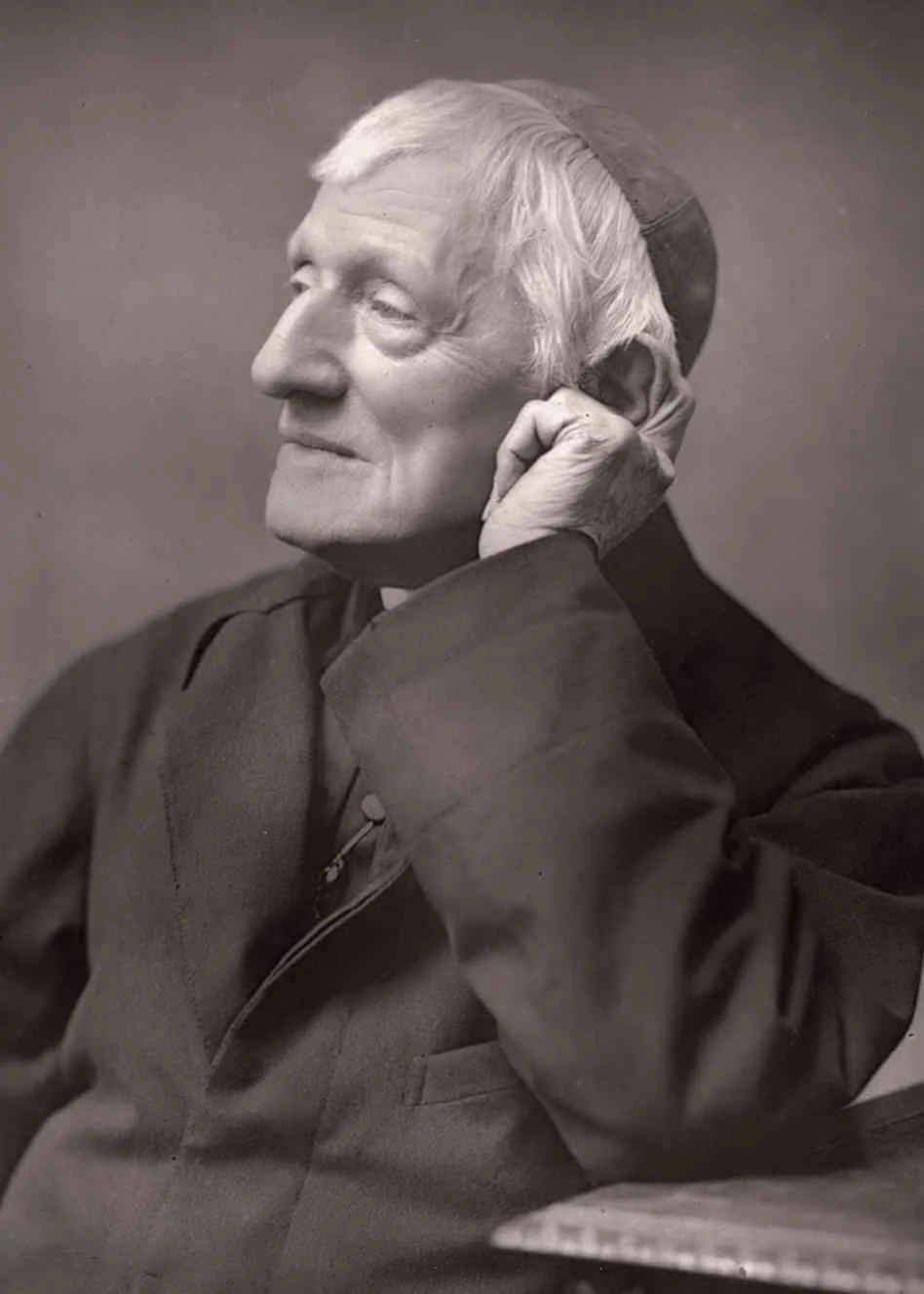SAINT John Henry Newman of the Oratory
John Henry Newman was born in London on 21st February 1801, the eldest of six children of London banker. He grew up in the Church of England. In his youth he experienced a deep religious conversion and resolved to spend the rest of his life in the pursuit of holiness.
In 1822 he was elected a fellow of Oriel College, Oxford, was ordained as an Anglican priest in 1825, and in 1828 became the Vicar of the University church of St Mary’s. He became a leading light in the Oxford Movement, seeking to recover elements of catholicity within Anglicanism. In 1843 he resigned his living at St Mary’s and retired to a converted stable block at Littlemore just outside Oxford, to think and pray. He was joined there by a number of his young followers and together they lived an austere semi-monastic life. Late in the evening on 8th October 1845, an Italian priest, Father Dominic Barberi (now Blessed), came to Littlemore. For several hours he heard Newman’s first confession, and the next day he was received into the Catholic Church.
In 1846 Newman went to Rome to study for the priesthood and was ordained priest there on Trinity Sunday 1847, at the age of forty six. He then returned to England and the English Oratory was founded in February 1848 in Birmingham. Meanwhile Father Wilfrid Faber had also converted from Anglicanism and he and several other converts joined Newman’s new Oratory. Faber was then sent to establish the Oratory in London in May 1849.
Newman was always a prolific writer of letters, sermons and articles, and this continued throughout his life. His work was sometimes misunderstood, and a number of projects that he was asked to lead or support seemed to come to nothing. At one stage he was even wrongly suspected of doctrinal unorthodoxy. At times he must have felt that he was living under a cloud of disapproval.
In 1879 the cloud was lifted. At the age of seventy eight he was made a Cardinal of the Holy Roman Church by Pope Leo XIII. Newman chose as his cardinalatial motto the words "Cor ad cor loquitur" (heart speaks to heart). He lived out the rest of his days, quietly and prayerfully, and still writing, at the Birmingham Oratory. He was taken to his eternal reward on 11th August 1890. His funeral procession from the Birmingham Oratory to Rednal attracted crowds of 15-20,000 onlookers, and he was lauded in the national press both in England and abroad.
In 1958 the cause for his canonisation was opened. In 1991 the Vatican's Congregation for the Causes of Saints declared that John Henry Newman had practiced the virtues to an heroic degree and he was proclaimed 'Venerable'. In October 2005 the postulator of the cause announced a potential miracle; Jack Sullivan, a Catholic deacon in Massachusetts, USA, attributed his recovery from a crippling spinal cord disorder to Newman's intercession in heaven.
On 3rd July 2009 Pope Benedict XVI approved the authenticity of the miracle, thus opening the way for Newman's beatification. Beatification is the solemn affirmation by the Church that the servant of God may rightly be counted as being among the ranks of the Blessed, and that his prayers in heaven may laudably be sought by the faithful on earth. Benedict XVI beatified Cardinal Newman on September 19th, 2010 in Birmingham, during His State Visit to Great Britain.
A second miracle at the intercession of Blessed John Henry, the healing of a pregnant woman from a grave illness, was approved on 12 February 2019. On 13 October 2019 declared John Henry Newman a saint.


